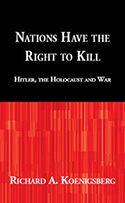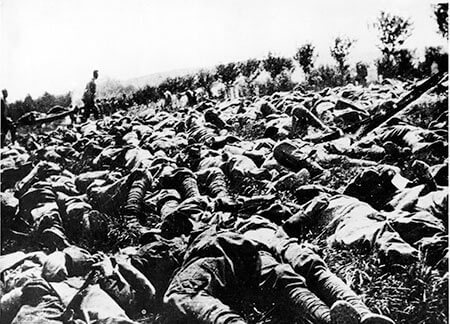|
||||||||||||
However, the essence of war is contained in the photo below: men as abject victims. Kahn suggests that warfare expresses or conveys a metaphysical impulse: desire to imagine there is something “up above”—to die and kill for. Kahn calls this thing “the sovereign”—the entity in the name of which dying and killing occurs. This entity may be given the name “king” or “emperor” “nation” or “the people.” Viewing the dead, mutilated bodies (see below), we imagine there must have been some thing that generated all of the sound and fury. But these men died for no thing. Oh, perhaps they died in the name of Italy, or for the Austrian-Hungarian Empire, or for Great Britain or for France: things that we call nations. We believe so deeply in the existence of these entities. With religious belief waning before the First World War, there was a profound need for a substitute. World War I was a “family affair:” one proved one was a member of the family of nations by sending one’s own young men to be slaughtered. Australians fought a useless battle at Gallipoli, one of the most useless battles I’ve ever read about. Nonetheless, Australia came into being based on this battle. Did the young men die in vain? The Allies lost the battle, but this was beside the point. The men died to show they would give their lives for their nation and its people. They sacrificed their lives, and were resurrected as “Australia.” |
||||||||||||
|
||||||||||||

